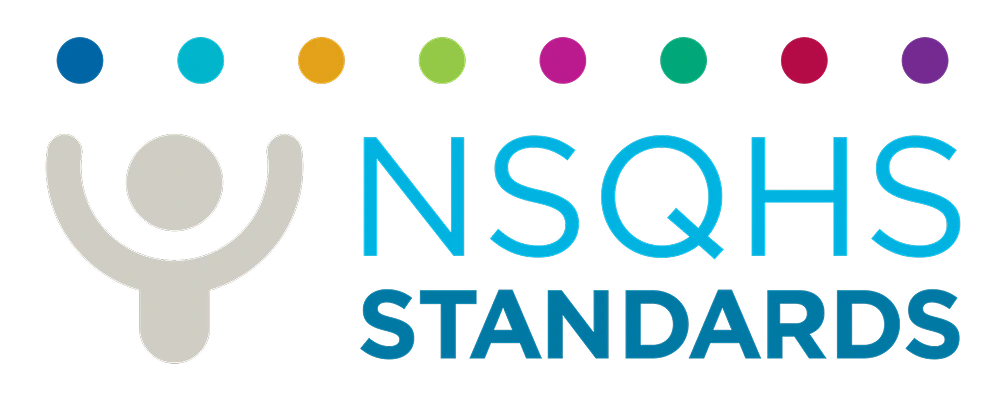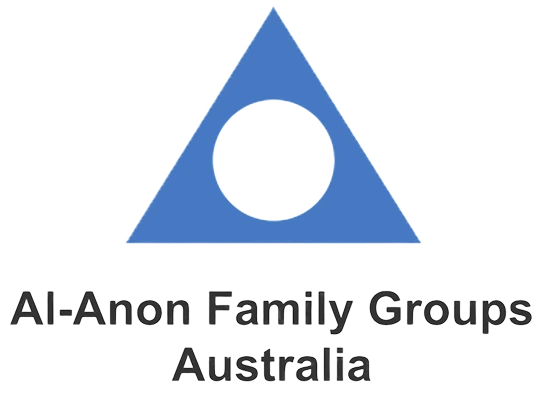Facilities and locations
We provide inpatient care and transitional housing across two residential sites in Victoria. Both are calm, private, and purpose-designed to support therapeutic structure and mental health recovery.
Bipolar disorder is complex, especially when addiction is also in the picture. Our inpatient rehab program supports people with bipolar disorder using proven treatment options that address both.
Take a self-assessment or speak to someone now, with no pressure to commit.


More than half of people diagnosed with bipolar disorder also experience a substance use disorder. When these conditions occur together, they often amplify each other, leading to greater instability, higher relapse risk, and disrupted treatment.
According to the Bipolar Disorder and Comorbid Use of Illicit Substances study, the most effective treatment combines psychiatric and addiction support in one place. Our residential rehab program does exactly that, helping people with bipolar disorder stabilise, reduce reliance on substances, and rebuild emotional structure and insight.
We’ll call it when it suits you, with no pressure to commit
We offer a structured inpatient setting that balances therapy, medication support, emotional regulation, and behavioural routines. Each program is guided by your needs and diagnosis.
We support clients with complex or unclear diagnoses, including overlapping symptoms like depression, anxiety, trauma, and emotional dysregulation.
Bipolar disorder is a lifelong condition that affects mood, energy, and decision-making. With the right support, people with bipolar disorder can live full and stable lives, including recovery from substance use.

Bipolar disorder is a mental health condition that causes shifts between episodes of depression and mania. It can affect sleep, energy, focus, and relationships. The disorder may begin during adolescence or adulthood and…

Symptoms vary by type of bipolar disorder. Common signs include elevated mood, impulsive decisions, rapid speech, agitation, hopelessness, and social withdrawal.

Bipolar disorder may run in families, and it often appears alongside trauma or addiction. Risk factors include brain chemistry, stress, and sleep disruption.

There are several types of bipolar disorder, including bipolar I, bipolar II, and cyclothymia. Diagnosis involves clinical assessment, history, and ongoing observation.

Anyone diagnosed with bipolar who is also struggling with addiction, emotional instability, or loss of function. We support clients with clear diagnoses, mixed features, or early-stage episodes.
This short, confidential quiz takes less than two minutes and can help you make sense of what’s going on. Choose the category that feels most relevant to you — whether it’s alcohol, drugs, or a mix of concerns — and we’ll guide you through a few simple yes/no questions.
At the end, we’ll let you know if your answers suggest it might be time to consider rehab, and share safe, confidential options for getting started.

Step1

We’ll help you clarify your goals, explore your treatment options, and determine if our program is the right fit.
Step2

We’ll create a personalised treatment plan that fits your timeline, your symptoms, and your level of support.
Step3

Whether you're starting with detox, rehab, or transitional care, we’ll support you from day one.
We’re here whenever you’re ready – book a call or speak to someone now.
Our rehab program was designed for people with bipolar disorder, not retrofitted. That means therapy, routines and support are all structured to reduce chaos, regulate mood, and help clients build a daily rhythm they can maintain.
We support a wide range of substance use and mental health conditions. Whether you're dealing with alcohol, prescription drugs, or behavioural dependencies, our team can help you move forward with care that fits.
We’re fully accredited under the National Safety and Quality Health Service (NSQHS) Standards, developed by the Australian Commission on Safety and Quality in Health Care (ACSQHC).





We provide inpatient care and transitional housing across two residential sites in Victoria. Both are calm, private, and purpose-designed to support therapeutic structure and mental health recovery.




Clients who complete our 90-day program remain sober at 12 months.
Clients enrol in Hader@Home aftercare or transitional housing to support long-term engagement and reduce relapse risk.
Clients who access structured aftercare are significantly more likely to maintain recovery and avoid relapse.
Half of all people with addiction also have a co-occurring mental health condition, highlighting the need for dual diagnosis support.
We track more than attendance. Our outcome data focuses on long-term emotional stability, relapse prevention, and improved daily functioning for people with bipolar disorder.
You don’t need to have everything figured out. Whether you’re asking for yourself or a loved one, we’re here to listen, guide and support your next step.

Take a quick, private quiz to see if rehab could help and explore safe support options.

Schedule a confidential call with a specialist at a time that suits you.

Speak to someone immediately for guidance and support.
We offer several funding pathways and can help you explore the best option (or combination of options) based on your needs and eligibility.
Our pricing covers every part of your inpatient stay, including accommodation, meals, therapy, clinical care, medication reviews and discharge planning.

We accept a range of payment options, including private health insurance, superannuation release, DVA, and tailored payment plans. We’ll help you find what works.

Our staff includes psychiatrists, nurses, therapists, peer workers and case managers, many of whom have lived experience with addiction and mental health recovery.


We’ve supported Australians with addiction and mental health conditions for more than 25 years. Our programs are trauma-informed, clinically accredited and shaped by real-world experience.
Whether you’re seeking help for yourself or supporting someone you love, we’ll guide you toward the right program, explain your options, and support you from day one.
These blogs explore the complexities of bipolar disorder, substance use, dual diagnosis and real-world recovery. They’re written to support your next step with honest, evidence-informed insight.
If you’re ready for help, or even just curious about what’s next, we’re here. Whether it’s for yourself or someone you love, we’ll guide you through the options and support your next step.
Speak to someone who understands
Yes. Bipolar disorder and substance use often occur together, and they must be treated together. Research shows that individuals with bipolar disorder who also struggle with addiction have higher relapse rates and poorer outcomes unless both conditions are addressed at the same time.
Our rehab program provides integrated treatment for bipolar disorder and substance abuse. That includes psychiatric oversight, therapeutic support, medication stabilisation and addiction-focused care, all in one setting. This kind of comprehensive treatment plan is essential for people dealing with bipolar disorder and substance use, because each condition affects the other.
We also support co-occurring issues like anger management, anxiety, and PTSD, which are common in people with dual diagnoses.
If you’d like to learn more about how bipolar disorder and addiction often overlap, our blog on substance abuse and comorbidity explains the importance of integrated care and why treating both conditions together is so crucial.
You don’t need to have an existing diagnosis to begin treatment. Many people come to us unsure if they meet the diagnostic criteria for bipolar disorder or whether they’re experiencing another mental health condition.
We start by listening. Our intake and assessment process includes time with a mental health professional who will help you understand your symptoms and explore treatment options that suit your situation.
Whether you're dealing with episodes of mania and depression or symptoms that don’t fit neatly into a label, we’ll guide you toward the right path. You don’t need a diagnosis to get help — just a willingness to start the conversation.
Yes. Our program supports people with bipolar I, bipolar II, and mixed presentations. People with bipolar II disorder often struggle with extended depressive episodes and periods of elevated mood that don't reach full mania, but are still highly disruptive.
We also support clients experiencing complex cycles, mood instability, and overlapping symptoms that don’t fit neatly into one form of bipolar. If you're unsure whether you have bipolar II, a milder form of bipolar disorder, or something else entirely, we’ll support you with assessment, stabilisation, and personalised care planning.
If you're currently experiencing a mixed episode — where symptoms of mania or depression happen at the same time — we can help you reduce overwhelm, establish structure, and feel safe again.
Many individuals with bipolar disorder have tried treatment before, and that doesn’t mean recovery isn’t possible. Sometimes the approach wasn’t the right fit. Sometimes it wasn’t integrated, or it didn’t address co-occurring issues like addiction.
At Hader, we offer long-term treatment of bipolar disorder with wraparound support. That means we treat the whole person, not just the symptoms, and we provide a consistent team and stable environment across every stage of care.
We also work closely with family members through our family program to rebuild relationships and offer insight into the lived experience of mental health and addiction.
Recovery can look different for everyone, and the structure of a rehab program plays a big role in success. If you're curious about what to expect, our article on what happens in rehab offers a detailed breakdown of the daily routine, therapies, and support systems that help clients build long-term recovery.
That depends on your symptoms, your substance use history, and your recovery goals. Many people with bipolar and related disorders benefit from a longer stay, especially if they’re experiencing ongoing instability or struggling to manage bipolar disorder day to day.
At Hader, we recommend at least 30–90 days of inpatient care, followed by transitional support and aftercare. This long-term rehab pathway is especially useful for those with disrupted sleep, frequent mood episodes, or poor treatment adherence.
You can learn more about our long-term rehab options and get help creating a timeline that suits you.
We combine structured therapies with medication support and emotional regulation. Every client receives a personalised treatment plan built around their symptoms and goals.
Common approaches include CBT, mindfulness, and interpersonal therapy. For some clients, we also use alcohol rehab or drug rehab streams if substance use is a core issue.
We also use social rhythm therapy to help stabilise sleep, structure and energy levels. This is a highly effective approach for treating bipolar depression and managing the highs and lows of bipolar.
Yes. Ongoing treatment is a critical part of managing bipolar disorder. We offer several aftercare options — including counselling, online therapy, and relapse prevention planning.
You’ll work with your team before discharge to create a comprehensive treatment plan that supports stability, medication adherence and long-term change. We’ll also help you re-engage with work, study, or community life as part of your recovery process.
Whether you're living with anxiety, adjusting to life after rehab, or still building support networks, we stay in touch and stay involved.
Supporting someone with bipolar disorder and addiction after rehab can be challenging. If you’re unsure how to approach it, our guide on how to convince an addict to go to rehab offers practical tips for families and friends navigating the early stages of recovery together.
Yes. Many individuals with bipolar disorder experience suicidal thoughts, especially during depressive episodes or mixed states. You are not alone, and support is available. Our inpatient rehab setting provides immediate structure, clinical supervision, and daily therapy to reduce risk and build emotional safety. Treatment can help you move from crisis to recovery. If you’re thinking about suicide, reach out. We’ll help you take the next step safely.